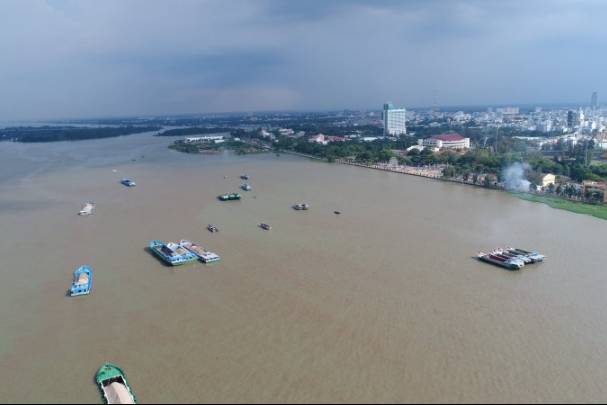After four years of implementing Resolution No. 120/NQ-CP on the sustainable development of the Mekong Delta in response to climate change, Viet Nam's water diplomacy in the Mekong region has achieved significant progress. By actively engaging in bilateral and multilateral mechanisms, Viet Nam has highlighted pressing water security issues in the area and strengthened cooperation to address them.
For transboundary water resources, Viet Nam has established coordination mechanisms with upstream countries through various platforms, including the Viet Nam Mekong River Commission, the International Mekong River Commission, and cooperation frameworks such as Mekong-Lancang Cooperation, Mekong-Ganga Cooperation, Mekong-Japan Cooperation, Mekong-Korea Cooperation, and the Mekong-US Partnership (MUSP). Other initiatives include the Friends of the Mekong (FOM) and bilateral collaborations with countries like Japan, Korea, China, Laos, and Cambodia. Notably, the Vietnamese Government has supported Laos in developing river basin irrigation plans.
Provinces along the border have also collaborated to resolve transboundary water disputes and conflicts. For example, Dak Nong province in Viet Nam has partnered with Mondulkiri province in Cambodia to establish mechanisms and policies for water resource management.

As a downstream country of two major rivers, the Red River and the Mekong River, Viet Nam remains vulnerable to adverse impacts from upstream development programs and projects. This underscores the importance of proactive water diplomacy.
Five ministries play key roles in implementing water diplomacy activities, including the Ministry of Natural Resources and Environment, the Ministry of Industry and Trade, the Ministry of Construction, the Ministry of Finance, and the Ministry of Agriculture and Rural Development as focal agencies. The Ministry of Natural Resources and Environment has assigned specific tasks to each unit through the Ministry's annual work program, especially developing legal documents.